Trying to do the following: Propagate environment values from .env file to php file environment values.
Set MYSQL variables in .env file.
#cat .env
MYSQL_ROOT_PASSWORD=RootPassword
MYSQL_USER=gnf_user
MYSQL_PASSWORD=UserPassword
MYSQL_DATABASE=gnf_noah
MYSQL_HOST=db
I would like that to propagate to my container. So I do:
#cat docker-compose.yml
version: "3.2"
services:
www:
build: . #Include Dockerfile in current directory
ports:
- "30001:80"
- "30443:443"
expose:
- "80"
- "443"
volumes:
- "var:/var/www/html/var/"
environment:
MYSQL_HOST: ${MYSQL_HOST}
MYSQL_DATABASE: ${MYSQL_DATABASE}
MYSQL_ROOT_PASSWORD: ${MYSQL_ROOT_PASSWORD}
MYSQL_USER: ${MYSQL_USER}
MYSQL_PASSWORD: ${MYSQL_PASSWORD}
restart: always
networks:
- frontend
- backend
links:
- db:db
# shortend for readability ;-)
Now, trying in my container to grab those values:
$db_host = getenv('MYSQL_HOST', true) ?: getenv('MYSQL_HOST');
$db_name = getenv('MYSQL_DATABASE', true) ?: getenv('MYSQL_DATABASE');
$db_user = getenv('MYSQL_USER', true) ?: getenv('MYSQL_USER');
$db_pwd = getenv('MYSQL_PASSWORD', true) ?: getenv('MYSQL_PASSWORD');
Gives empty values.
Am I on the totally wrong page here.. or do I need a script to set those values on build time eg. in /docker-entrypoint-init.d" or something like that?
(EDIT) Files used:
drwxr-xr-x 2 root root 4096 Aug 16 18:54 conf
-rw-r--r-- 1 root root 1406 Aug 17 17:17 docker-compose.yaml
-rw-r--r-- 1 root root 992 Aug 17 19:31 Dockerfile
drwxr-xr-x 2 root root 4096 Aug 17 14:45 dump
-rw-r--r-- 1 root root 125 Aug 17 07:06 .env
-rw-r--r-- 1 root root 55799 Aug 6 20:10 install-php-extensions
drwxr-xr-x 2 root root 4096 Aug 13 08:36 mysql
drwxrwxr-x 25 root 1005 4096 Aug 18 05:40 www
